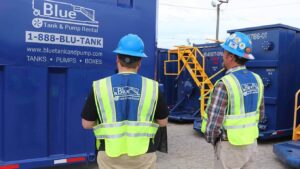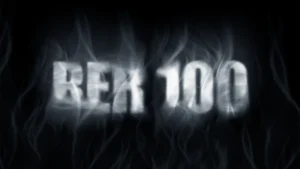It’s no surprise that technology is constantly evolving. Even within the last five years, it’s staggering just how much technology has revolutionized the rental industry. We now have integrated RFID technology, GPS and tracking capabilities, Cloud technology, mobile workforce solutions and much more. In the next five years, the advances in the tech space will likely be just as astonishing.
The next “big thing” in the tech industry is the Internet of Things (IoT). The IoT concept is that everything is connected through the Internet. Take the Nest for example, which is an Internet-enabled thermostat. Just a few years ago, some would say there is no reason for your thermostat to have Internet connectivity. However, Nest has changed beliefs by drastically increasing power efficiency and money savings. By providing real-time access to your thermostat through an app on your phone, it allows you to adjust the air-conditioning when you’re away or start cooling again before you return, making it easier than ever to conserve energy.
As the IoT continues to develop, the idea is that eventually, everything will be network connected, giving you real-time access to things like your refrigerator, lights, water, car – whatever you can think of! Even today, there is a car insurance agency that offers usage-based insurance (UBI), which plugs into your car and reports exactly how fast you’re going, how quickly you speed up and slow down or when you rapidly swerve. All of this data is collected and used to rate driver safety and then adjust insurance rates accordingly. Eventually, when there is an accident, police may just plug into the cars and collect data to determine which driver is at fault. It’s no question that the IoT is changing the world around us, but what does that look like for the rental industry?
The rental industry will progress rapidly with connecting equipment to the IoT. RFID integration is just the tip of the iceberg. Currently, RFID chips are placed on items such as linens and a special reader is waved over a stack; the RFID chips then communicate how many items are in each batch. If these chips were connected to the Internet, you could simply press a button on your computer and it would tell you exactly how many items you have in inventory as well as where they are. You can even ask the reader where one specific item is and it would lead you to it.
GPS integration has also taken innovative steps to transform the rental industry. Currently, this integration allows you to read mileage, hours, altitude and fuel, but imagine the capabilities it could have in the future! The IoT would allow information to be sent to your computer or phone, send error messages, permit remote diagnoses and even send codes to reprogram the carburetor. Additionally, this technology would help protect you against a renter’s negligence. It could send real-time updates if one of your trucks or trailers is speeding, and would be essential for accidents. If someone was renting a trailer and had an accident, you would have data to prove that they were speeding and charge them accordingly. The same technology could be useful to notify you if someone puts too much weight in a dump truck or if a front-end loader is lifting something too heavy. Not only would you have access to current data, allowing you to notify the customer that the equipment is being misused, but this data would also be useful for any disputes in extra charges or damage to equipment.
The Internet of Things has exciting capabilities and will be revolutionizing the rental industry in the near future. We are looking forward to these advances and keeping you on the cutting edge of technology.
What do you think the future holds for the rental industry? We’d love to hear your thoughts in the comments!



